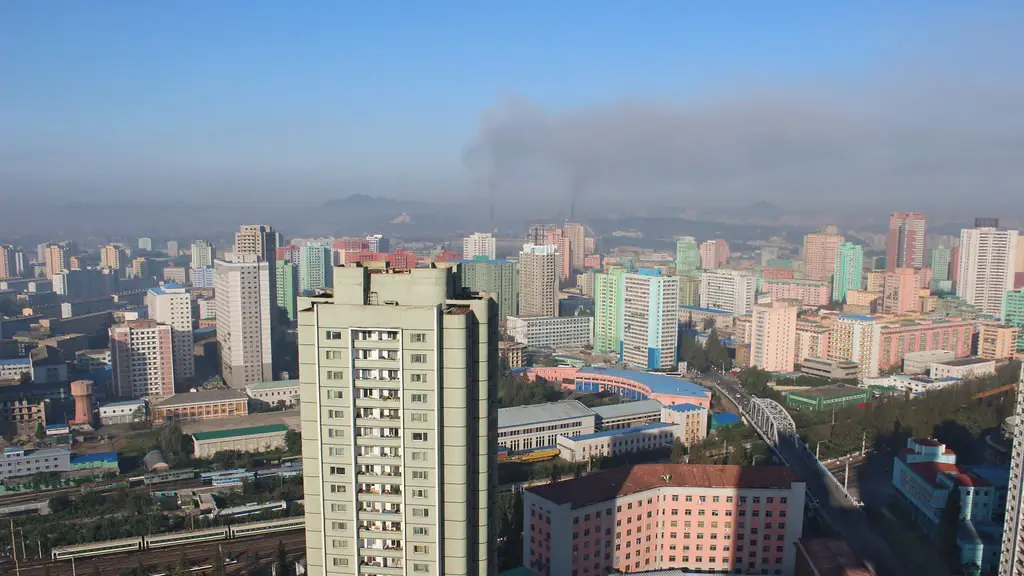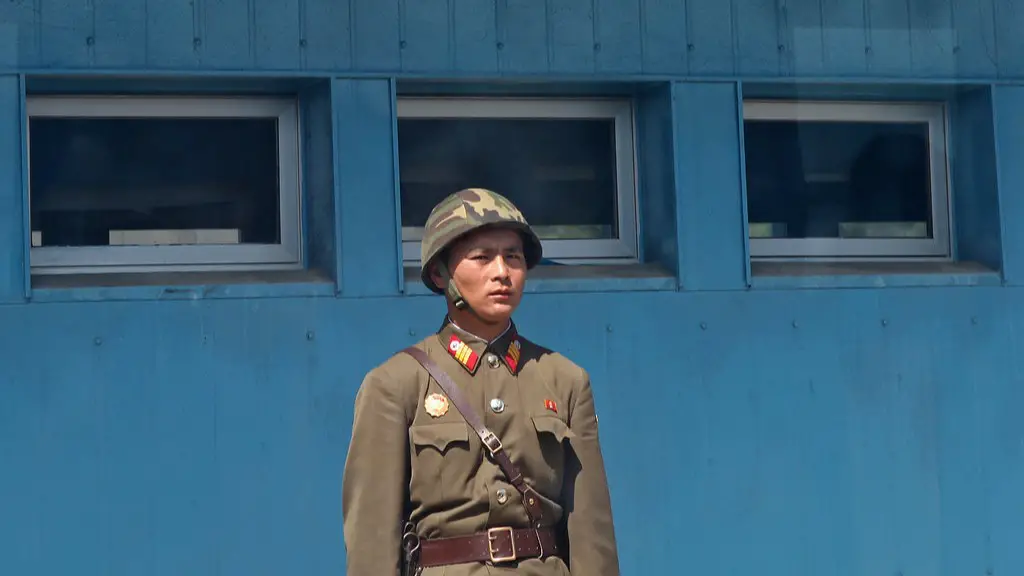Though uranium from North Korea isn’t something that many people consider when thinking of the hermit kingdom, it has become an increasingly hot topic in recent years. Since the country’s nuclear ambitions have grown, so have questions about where it obtains its uranium and how it acquired the materials necessary for its nuclear programs. To gain a better understanding of the situation, let’s take a closer look at where North Korea gets its uranium, the implications it has for the region, and how we can address the issue.
History of North Korea’s Nuclear Program
North Korea’s nuclear ambitions date back to the mid-1960s with the development of a plutonium-producing reactor as part of the so-called “Atomic Energy Research Program,” which was headed by the Soviet Union. In the 1980s, North Korea began exploring the possibility of enriching uranium for use in nuclear weapons, but the process was slow and sporadic due to a lack of finances and technology. In the early 1990s, the country purchased uranium enrichment technology from the Pakistani nuclear scientist A. Q. Khan, which allowed the North Koreans to produce uranium hexafluoride (UF6), an important precursor material in the uranium enrichment process.
By the early 2000s, the North Korean government had established a uranium enrichment facility at the Yongbyon Nuclear Research Center, utilizing centrifuges acquired from the Khan network. This facility has been used to produce large quantities of enriched uranium, which has been used in the production of nuclear weapons and fuel for nuclear reactors. It is likely that North Korea has continued to acquire uranium from foreign sources, although the exact origin of this material is still unknown.
Implications for the Region
The acquisition of uranium by North Korea has caused considerable concern in the region due to the potential for proliferation. North Korea has already conducted several nuclear tests and is believed to have developed a nuclear warhead capable of delivering a nuclear payload. This has raised fears that the country may attempt to use its nuclear weapons in an aggressive manner, thereby destabilizing the security of the region. Furthermore, the uranium enrichment process produces a range of radioactive materials that could be used in a nuclear weapon, so the risk of nuclear proliferation is very real.
Additionally, the acquisition of uranium by North Korea has heightened tensions between the United States and the country’s neighbors, particularly South Korea and Japan. The two countries have become increasingly concerned about the possibility of North Korea using nuclear weapons to threaten their security. Furthermore, the international community has become increasingly concerned about the possibility that North Korea could export uranium to other states, potentially providing them with material for their own nuclear programs.
How Can We Address the Issue?
Given the gravity of the situation, it is essential that the international community takes decisive steps to address the threat posed by North Korea’s acquisition of uranium. The most effective way of doing this is through the implementation of a coordinated approach involving the United States, the United Nations, and North Korea’s regional neighbors. This should focus on isolating the North Korean government and denying access to foreign sources of uranium.
It is also important to engage in dialogue with North Korea, in the hope of finding a peaceful resolution to the current situation. This can include talks aimed at improving relations between the two countries, as well as negotiations to reduce the level of uranium enrichment and ensure that the country is not attempting to export uranium to other states.
Finally, it is essential that the United States and its allies provide effective diplomacy, sanctions, and economic assistance to North Korea. This will help to ensure that the country maintains peaceful relations with its neighbors, while also placing pressure on the government to limit its nuclear ambitions.
Military Action
If diplomacy fails, then the United States could consider military action to neutralize the nuclear threat posed by North Korea. A major military operation would be risky, as North Korea could retaliate with either conventional or nuclear weapons. Therefore, it is essential that such a move is taken in cooperation with South Korea and Japan, who view North Korea as an immediate threat. Furthermore, such an operation should be undertaken with a clear strategy and with the aim of removing the North Korean regime from power.
It is worth noting that although military action is a viable option for responding to North Korea’s nuclear ambitions, it should only be taken as a last resort. If the United States and its allies hope to achieve a peaceful resolution to the current situation, then diplomacy and economic pressure should be given preference.
International Organizations
Another way to address the problem of North Korea’s acquisition of uranium is to ensure that international organizations are able to monitor the situation. This could include initiatives such as the International Atomic Energy Agency’s (IAEA) Comprehensive Safeguards Agreement, which requires member states to cooperate with IAEA inspectors and report on any nuclear activities within their borders. The IAEA also has the authority to assess whether a country is in compliance with its legal obligations and to inspect any nuclear materials.
It is also important to ensure that the United Nations Security Council remains engaged in the situation. The Council has already imposed a series of sanctions on North Korea and has the power to further tighten these if the country does not comply with its resolutions. This could include additional bans on the import of weapons or materials for nuclear programs. Furthermore, the Security Council also has the authority to refer the issue to the International Criminal Court, if necessary.
China’s Role
China plays an important role in the North Korean nuclear issue. The country is North Korea’s closest ally and provides the hermit kingdom with vital economic and political support. As such, the Chinese government has an important responsibility in ensuring that North Korea does not acquire uranium from foreign sources. This could be done by imposing stricter sanctions on North Korean imports and exports and by making sure that any deliveries that do occur are closely monitored.
China could also play an important role in encouraging North Korea to enter into dialogue with the international community. Beijing could use its considerable influence to convince Pyongyang to back down from its nuclear ambitions, thereby reducing the risk of regional instability. Furthermore, China could use its diplomatic clout to urge North Korea to come to the negotiating table and enter into direct talks with the United States and its allies.
Conclusion
Though the issue of North Korea’s uranium acquisition is a complex one, there are several steps that can be taken to address the situation. It is essential that the international community works together to isolate and pressure North Korea, while also encouraging the country to enter into dialogue with the United States and its allies. Additionally, measures must be taken to ensure that international organizations are able to monitor the situation and that China uses its considerable influence to convince Pyongyang to back down from its nuclear ambitions. While there is no guarantee that these measures will be successful, if implemented correctly, they could lead to a peaceful resolution of the North Korean nuclear issue.



